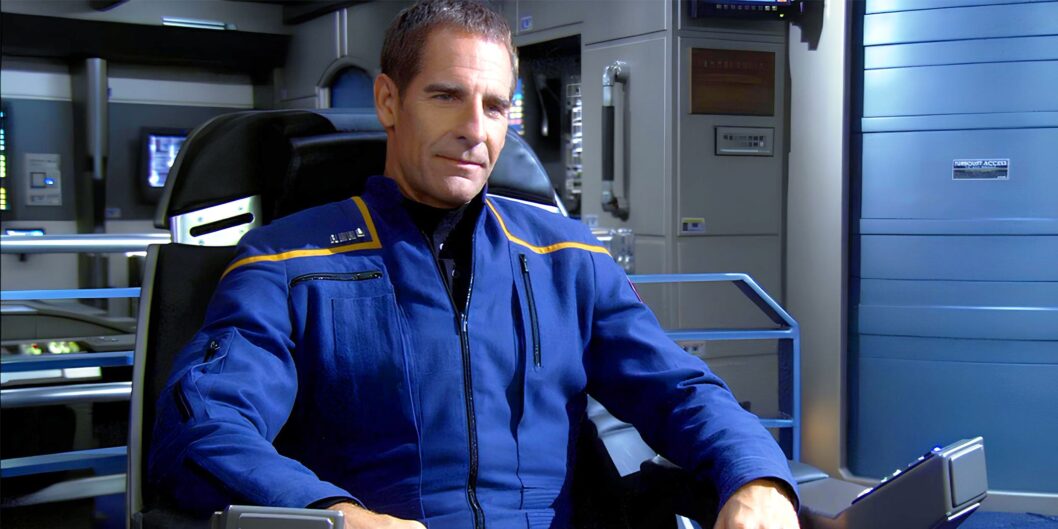Revisiting the Unwritten Journey of Star Trek: Enterprise Season 5
The cancellation of Star Trek: Enterprise after its fourth season left many fans pondering what might have been. As discussions around a potential fifth season resurface, details reveal that the show’s trajectory could have dramatically changed. With plans for compelling story arcs and character developments, season 5 promised to address several narrative gaps and character imbalances that existed in the earlier seasons.
Character Imbalances and Development Plans
Star Trek: Enterprise, featuring a core cast of seven main characters, often focused predominantly on Captain Jonathan Archer (Scott Bakula), Commander Trip Tucker (Connor Trinneer), Subcommander T’Pol (Jolene Blalock), and Dr. Phlox (John Billingsley). This narrow focus led to less screen time for other key characters like Lieutenant Malcolm Reed (Dominic Keating), Ensign Hoshi Sato (Linda Park), and Ensign Travis Mayweather (Anthony Montgomery).
The anticipated fifth season aimed to remedy this disparity, introducing narrative arcs that promised significant developments. One of these arcs included the much-anticipated Romulan War—a conflict referenced throughout the Star Trek franchise. This storyline would not only enhance the narrative complexity but also contribute to the overarching mythology of the Star Trek universe, ultimately leading to the formation of the United Federation of Planets.
Adding to the Dynamics: Thy’lek Shran
If season 5 had come to fruition, another major change would have involved the addition of Thy’lek Shran (portrayed by Jeffrey Combs) as a series regular. Initially seen as an antagonistic character, Shran would serve as an Andorian outsider advising Captain Archer, similar to how T’Pol initially functioned on the NX-01. This addition aimed to provide a richer depiction of Andorian culture, which had remained underexplored in previous seasons.
Shran’s dynamic with Archer could have offered a fresh angle, fostering growth in both characters. As noted, “Shran’s addition would have been a major step in showing how Archer brought Andorians into the fold as one of the Federation’s founding species.” By integrating Shran into the crew, the series could have better illustrated the complexities of interspecies cooperation, an essential theme in the Star Trek ethos.
Potential Character Growth for the Entire Cast
Moreover, the introduction of Shran had the potential to catalyze character development for the often-overlooked members of the crew. As the series progressed, the relationship-building between crew members became paramount. Shran’s interactions with the entire crew could have showcased the collaborative spirit essential to the Federation’s philosophy, possibly offering much-needed depth to characters like Reed, Sato, and Mayweather.
The series needed “a major shakeup to keep from getting too stagnant.” Like character enrichments seen in Deep Space Nine with Worf and Voyager with Seven of Nine, Shran could have redefined the storytelling dynamics aboard the NX-01, setting the stage for more intricate plotlines.
Cultural Perspectives: Enhancing Andorian Representation
Incorporating Shran as a series regular also promised to rectify the underdevelopment of Andorian culture, a criticism leveled against Enterprise. Compared to previous Star Trek entries that successfully explored various cultures, Enterprise strained to give Andorians the same layered representation. By featuring Shran, the series would not only add complexity to its storytelling but also align with the broader Star Trek mission of understanding and embracing diversity.
In the words of fans and critics alike, “If a Star Trek: Enterprise reunion ever happens, Shran is a part of it, because he would have been a great addition to Archer’s crew.”
Conclusion: A Legacy Unfulfilled
Ultimately, the absence of a fifth season for Star Trek: Enterprise left a bittersweet legacy. While fans still celebrate the series’ achievements, the potential for rich storytelling and character exploration remains a point of intrigue. As the Star Trek franchise evolves, the discussions surrounding Enterprise illustrate the timeless nature of its themes and the enduring desire for narratives that resonate across generations.
The speculation around a fifth season invites a critical reflection on storytelling in science fiction and its capacity to address the complexities of human (and alien) relationships. As Star Trek continues to expand its universe, the stories left untold in Enterprise may serve as a reminder of the potential for great narratives that foster understanding and cooperation in an ever-diverse galaxy.









